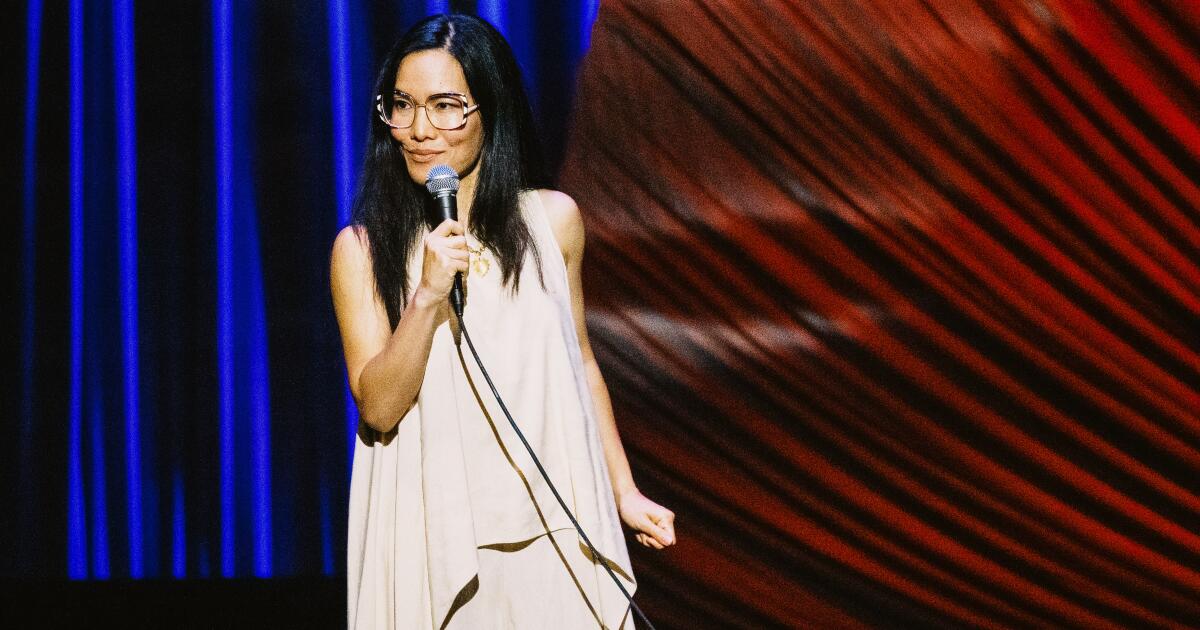Netflix Is a Joke Fest 2026 reveals star-studded line-up including Ali Wong, Bill Burr, Nikki Glaser and more
Netflix is a Joke returns to LA this May, shining a worldwide spotlight on stand-up comedy in Los Angeles. On Tuesday, the third installment of the sprawling event put on by Netflix announced the first wave of A-list comedians including Bill Burr, Ali Wong, Kevin Hart, Nikki Glaser and many more performing between May 4-10 at venues across LA. Though the fest itself has been cut down from 11 days to 6, the amount of talent jammed into that week doesn’t appear to have slimmed down much at all.
Hosting more than 350 live events, the festival taking place in comedy clubs across LA including the Comedy Store, Laugh Factory and Hollywood Improv as well as major venues such as the Hollywood Bowl, Intuit Dome and the Greek Theater. As per usual a mix of stand-up, variety shows, major comedy podcasts, tapings, exclusive events and screenings, and talent from various Netflix series and films will draw comedy fans from all over the world.
“What makes this fest so special is the sense of community—it’s a rare moment where the comedy industry and the fans come together in one place. We’re not just putting on shows; we’re creating one-of-a-kind experiences that celebrate the range, depth, and sheer brilliance of the comedy world right now,” said Tracey Pakosta, Netflix VP of Comedy Series.
So far other noteable performances on the bill include Mo Amer, Fred Armisen, Maria Bamford, Ralph Barbosa, Nate Bargatze, Ronny Chieng, Margaret Cho, Deon Cole, Larry David, Bert Kreischer, Nick Kroll, Bobby Lee, David Letterman, Lizzo, Conan O’Brien, Adam Sandler, Andrew Schulz, Iliza Shlesinger, Tom Segura, Jerry Seinfeld, Shaq, Taylor Tomlinson, Kill Tony, Mike Tyson, and Noah Wyle.
A few of the planned show highlights announced on Tuesday include “Night of Too Many Stars” hosted by Jon Stewart featuring A-list comics performing to raise money for benefit NEXT for Autism, a national organization providing programs and support for people living with autism.
The comedy competition show “Funny AF with Kevin Hart” seeking to find the next big comedian will begin streaming on Netflix April 20 and will hold its live semi-finals and finals during the festival. Bargatze is performing two nights at the Intuit Dome along with other major gigs from Colombian pop star Feid and Saturday Night Live’s Marcello Hernandez teaming up to bring together the largest Spanish language comedy show to the Hollywood Bowl in the venue’s history as well as a variety show tribute to the late Pee-Wee Herman.
“In just 4 years, Netflix Is a Joke Fest has grown into the world’s biggest celebration of comedy. This year, we’re bringing together legends, trailblazers, and the next generation of voices for an entire week of unforgettable moments across Los Angeles,” said Robbie Praw, Netflix VP of Stand-up and Comedy Formats. “From iconic stand-up shows and live podcast tapings to musical mashups and surprise events, the scope of this festival truly reflects the variety and excitement of comedy today. We’re thrilled to welcome fans from all over to experience the magic, energy, and laughter that only Netflix can deliver.”
Tickets for events across the festival will go on sale beginning at 10am PT on January 23rd. A full list of performances can be found on the festival’s website.
